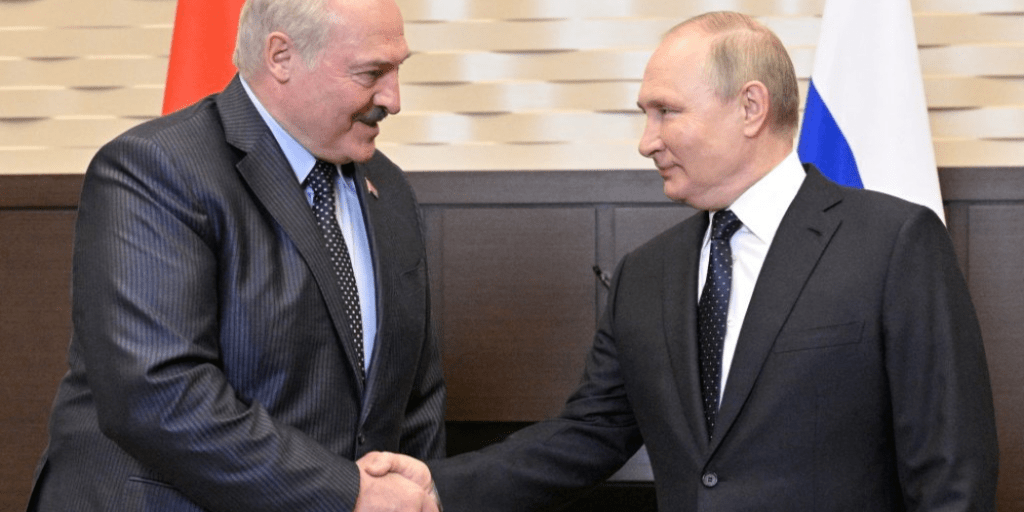By Brian Whitmore

He allowed Russia to use Belarusian territory as a platform to attack Ukraine and permitted Moscow to deploy nuclear-capable missiles near the Ukrainian border. He hijacked a European airliner and manufactured a migrant crisis. And he has carried out a brutal crackdown on dissent that includes the torture of opposition figures.
But despite all this, Belarusian autocrat Alyaksandr Lukashenka may have just discovered the perfect little escape hatch to free his regime from Western sanctions and international isolation. The key to Lukashenka’s potential liberation and rehabilitation lies in a problem that was created by his ally and patron, Vladimir Putin: the looming global food crisis that has resulted from Russia’s Black Sea blockade on Ukrainian grain.
Speaking at an extraordinary summit of EU leaders in Brussels, European Commission President Ursula von der Leyen said the food crisis is “only the fault of Russia,” accusing Moscow of blocking 22 million tons of grain from being shipped out of Ukraine’s Black Sea ports.
In an effort to alleviate the crisis, European leaders are seeking alternative routes to bring Ukrainian grain to global markets. One option being considered is shipping the grain via rail to ports on the Baltic Sea. And therein lies the catch. To get to Baltic Sea seaports like the Lithuanian port of Klaipeda, most of that grain would need to pass through Belarus.







